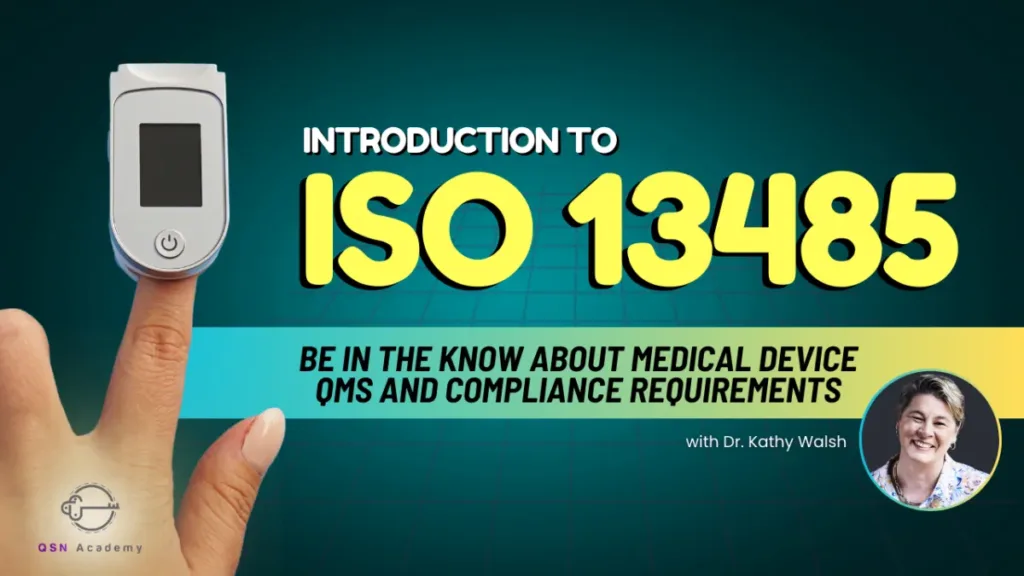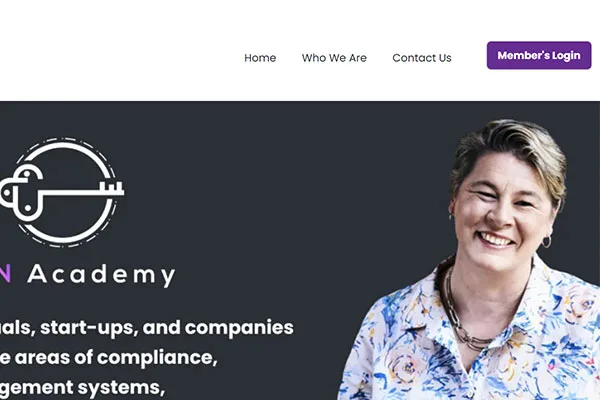QSN Academy serves as the digital training center for Quality Systems Now. We provide QSN Academy with a custom tailored SEO solution promoting the domain name both through on site SEO and off site SEO.

QSN Academy caters to:
- Individuals seeking to enhance their skills or initiate a career transition.
- Start-ups in need of expert guidance and mentoring for their team members.
- Companies seeking either ad-hoc or continual access to mentored courses as part of operational enhancements or routine training initiatives.
Feel free to reach out if you wish to arrange a customized class for your team.
Additionally, QSN Academy courses can be integrated into QSN consulting projects if desired. Get in touch with us if you have a project in mind that incorporates a training component.
Contact QSN Academy for a chat.
Digital marketing has transformed the landscape of advertising and promotion in recent years, revolutionizing the way businesses connect with their target audience and promote their products or services. In this comprehensive guide, we will delve into the intricacies of digital marketing, exploring its various components, strategies, and benefits, as well as discussing its role in today’s business environment.
What is Digital Marketing?
Digital marketing encompasses a broad range of online marketing tactics and strategies aimed at promoting products, services, or brands through digital channels such as websites, search engines, social media platforms, email, and mobile apps. Unlike traditional marketing methods that rely on offline mediums like print ads or television commercials, digital marketing leverages the power of the internet to reach and engage with a highly targeted audience in real-time.
Components of Digital Marketing:
- Search Engine Optimization (SEO): SEO involves optimizing a website’s content, structure, and technical elements to improve its visibility and rankings in search engine results pages (SERPs). By targeting relevant keywords and enhancing user experience, businesses can attract organic traffic from search engines like Google, Bing, and Yahoo.
- Search Engine Marketing (SEM): SEM encompasses paid advertising efforts to increase a website’s visibility in search engine results through paid search ads, commonly known as pay-per-click (PPC) ads. Platforms like Google Ads and Bing Ads allow advertisers to bid on keywords and display targeted ads to users searching for specific products or services.
- Social Media Marketing (SMM): SMM involves promoting products or services through social media platforms such as Facebook, Twitter, Instagram, LinkedIn, and Pinterest. Businesses can engage with their target audience, build brand awareness, and drive website traffic by sharing relevant content, running paid ads, and fostering community interactions.
- Content Marketing: Content marketing focuses on creating and distributing valuable, relevant, and consistent content to attract and retain a specific audience. Content formats may include blog posts, articles, videos, infographics, ebooks, podcasts, and more. By providing informative and entertaining content, businesses can establish authority, nurture relationships, and drive conversions.
- Email Marketing: Email marketing involves sending targeted emails to subscribers or customers to promote products, offers, events, or educational content. Effective email marketing campaigns leverage segmentation, personalization, automation, and analytics to deliver relevant messages and drive engagement and conversions.
- Affiliate Marketing: Affiliate marketing is a performance-based marketing strategy where businesses reward affiliates (publishers or influencers) for promoting their products or services and driving sales or leads. Affiliates earn a commission for each successful referral, incentivizing them to promote products to their audience.
- Influencer Marketing: Influencer marketing involves collaborating with influential individuals or personalities on social media platforms to promote products or services to their followers. Influencers typically have a loyal and engaged audience, making them valuable partners for brands looking to reach specific demographics or niche markets.
Key Strategies of Digital Marketing:
- Target Audience Identification: Understanding your target audience’s demographics, interests, preferences, and online behavior is essential for creating effective digital marketing campaigns. Conduct market research, analyze customer data, and develop buyer personas to tailor your marketing efforts to the needs and preferences of your audience.
- Content Creation and Optimization: Create high-quality, relevant, and engaging content that resonates with your target audience and aligns with their interests and needs. Optimize your content for search engines by incorporating relevant keywords, optimizing meta tags, and improving readability and user experience.
- Multi-Channel Marketing: Implement a multi-channel marketing strategy to reach your audience across various digital channels and touchpoints. Utilize a combination of SEO, SEM, SMM, email marketing, content marketing, and other tactics to maximize your brand’s visibility and engagement.
- Data Analysis and Optimization: Continuously monitor and analyze the performance of your digital marketing campaigns using key performance indicators (KPIs) such as website traffic, conversion rates, click-through rates, and return on investment (ROI). Use data-driven insights to identify trends, assess campaign effectiveness, and optimize your strategies for better results.
- Conversion Rate Optimization (CRO): Improve the effectiveness of your digital marketing campaigns by optimizing conversion pathways and user experience to maximize conversions and sales. Test different elements such as landing pages, calls-to-action (CTAs), forms, and checkout processes to identify and implement enhancements that drive better results.
- Customer Relationship Management (CRM): Build and nurture relationships with your audience and customers through personalized communication, engagement, and customer support. Utilize CRM software and automation tools to segment your audience, personalize messages, and deliver timely and relevant interactions across various touchpoints.
Benefits of Digital Marketing:
- Global Reach: Digital marketing allows businesses to reach a global audience regardless of geographical boundaries, enabling them to expand their market reach and attract customers from diverse regions and demographics.
- Cost-Effectiveness: Compared to traditional marketing methods, digital marketing offers a cost-effective solution for businesses of all sizes, with lower entry barriers and flexible budget allocation options for various digital channels and tactics.
- Measurable Results: Digital marketing provides robust analytics and reporting tools that enable businesses to track, measure, and analyze the performance of their campaigns in real-time. This allows for data-driven decision-making and continuous optimization to achieve better results.
- Targeted Advertising: Digital marketing enables precise targeting and segmentation of audiences based on demographics, interests, behaviors, and other criteria. This ensures that marketing messages are delivered to the right people at the right time, increasing the likelihood of engagement and conversions.
- Improved Engagement and Interactivity: Digital marketing offers opportunities for interactive and engaging marketing experiences through social media interactions, content consumption, email communications, and other digital touchpoints. This fosters deeper connections and relationships with customers, leading to increased loyalty and advocacy.
- Flexibility and Adaptability: Digital marketing allows businesses to quickly adapt to changing market conditions, consumer preferences, and industry trends. With agile strategies and tools, businesses can pivot their marketing efforts in response to emerging opportunities or challenges, ensuring continued relevance and competitiveness.
Digital marketing has become an integral part of modern business strategies, offering unparalleled opportunities for reaching, engaging, and converting customers in the digital age. By leveraging a diverse range of digital channels, tactics, and strategies, businesses can enhance their online presence, attract targeted traffic, generate leads, drive conversions, and ultimately achieve their marketing objectives. Embrace the power of digital marketing to propel your business forward in today’s dynamic and competitive marketplace.


